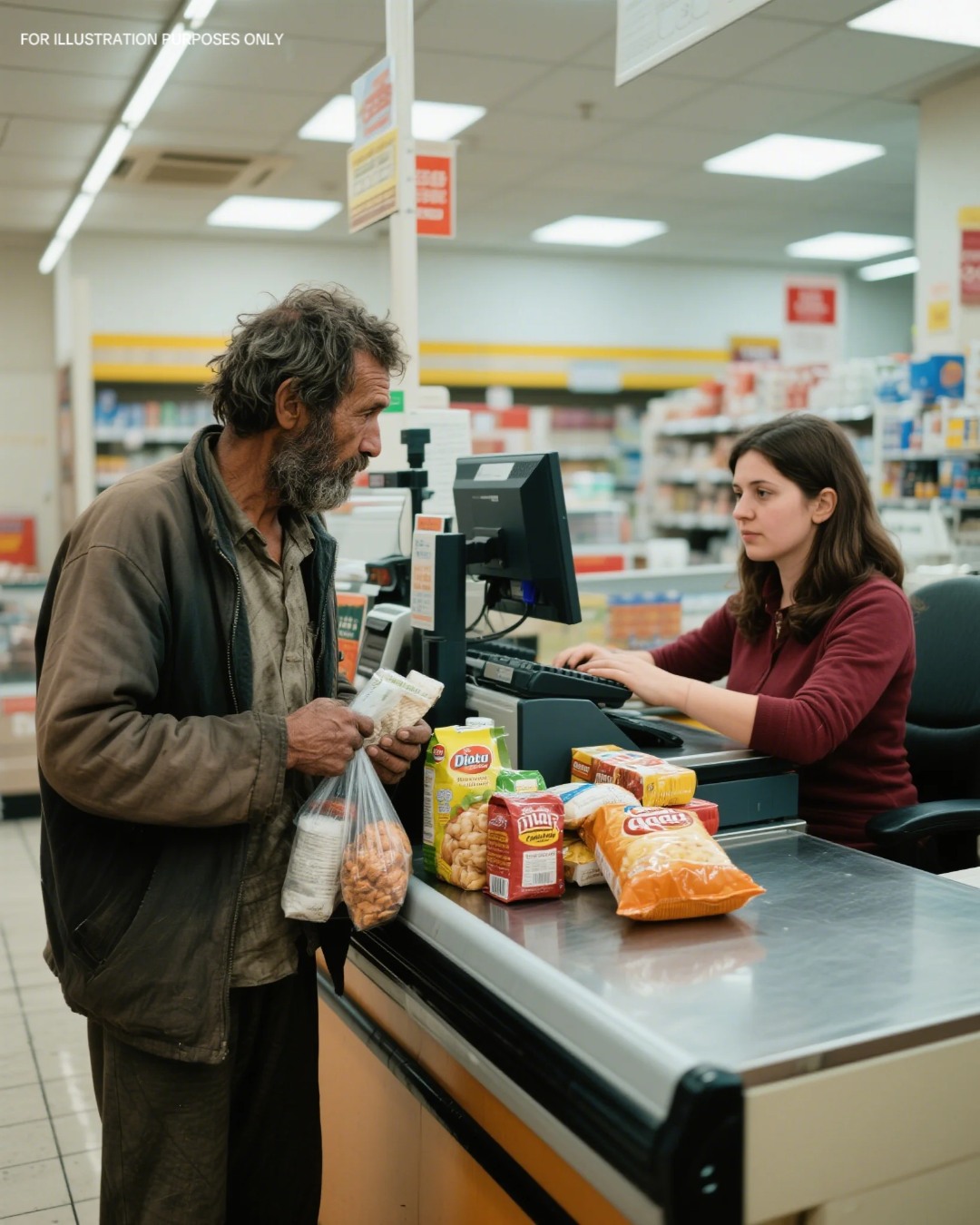Matthew felt a wave of nervous energy as he stepped toward the cashier, placing a small pack of gum on the counter. The man behind the register wore a nametag that read “Gregory.” Matthew took a deep breath before speaking. “I need to talk to you. It’s about Linda.” Gregory’s head snapped up at the mention of his daughter’s name.

“Is she in some kind of trouble?” he asked, alarmed. “No,” Matthew replied gently, “but do you have a few minutes?” Matthew then revealed that he was Linda’s biological father and asked the question that had been weighing on his heart: “Does Linda know she was adopted?” Gregory’s face grew tense, and with pleading eyes, he said, “No, and you can’t tell her. My wife left me a couple months ago, and I can’t lose Linda too. Please, don’t take her from me.” Matthew was conflicted. He had a deep longing to connect with his daughter but didn’t want to cause pain to the man who had raised her or disrupt her life, especially since he knew he didn’t have much time left. The next day, Matthew returned to the store where Linda worked, but this time he disguised himself as a poor man. He picked up a few basic grocery items and waited as she rang them up.
“I’m sorry, Miss,” he said, “I can’t afford all of that. I’ve only got ten dollars.” Without hesitation, Linda smiled warmly. “Don’t worry about it, sir. I’ll cover the rest.” A week later, Matthew came back dressed in his best suit. Linda barely recognized him. Gone was the frail man from before. Now he stood tall in a clean navy suit, crisp shirt, and neatly knotted tie. There was something familiar, yet different about him—calmer, more assured. He approached with a single chocolate bar and a small envelope. “I came to say thank you,” he said quietly, setting the items down. “That’s not necessary,” Linda replied kindly. “I insist,” he said with a soft smile, sliding the envelope across the counter. “Please read this—just not here. Sometime today.” She hesitated but agreed.
After her shift ended, she opened the envelope in the breakroom and unfolded the letter. It began, “Dear Linda, I’m your biological father.” Her hands shook as she continued reading. He explained that he had been young, scared, and unwell when he made the difficult choice to give her up. He didn’t want to interfere in her life—he just needed to know she was okay. Now that he had seen her kindness and compassion, he finally felt peace. Enclosed in the envelope was a second one, with instructions to open it when she felt ready. Three days passed before Linda opened the second envelope. Inside was a handwritten will.
It stated that Matthew Darnell, founder and sole owner of Darnell Design Works—a boutique architecture firm that had recently sold for $3.8 million—was leaving 100% of his remaining assets to his daughter, Linda May Darnell. Her heart pounded as she read the document, overwhelmed by disbelief. The following day, she went to the address listed in the letter, but the apartment’s front desk informed her that Matthew had moved to hospice care just two nights earlier. The next morning, she visited the hospice and found him pale and frail, but his eyes still held the same gentle spark. “You came,” he said softly. “I had to,” she whispered. They didn’t speak much that day. They just sat quietly, hand in hand. Over the following weeks, Linda visited him regularly. He shared stories about her birth mother, his early struggles building a business in his garage, and how he celebrated her birthday each year alone with a homemade cake and a photo. One morning, Linda arrived to find his bed empty. He had passed. She didn’t cry at first—just stood silently, absorbing the weight of everything he had given her, not just financially, but emotionally. In the months that followed, her life transformed. Matthew had planned everything—his lawyer guided her through the business sale, the financial details, and his final wish: a scholarship foundation for underprivileged students in architecture and design. Though initially overwhelmed, Linda slowly embraced her new path. She continued working part-time as a cashier while launching the scholarship, visiting schools, and taking nonprofit management classes. Months later, as she stood onstage handing out the foundation’s first scholarship to a student who reminded her of herself—humble, hardworking, hopeful—she smiled. Not because her life was suddenly easy, but because it now had purpose. Life doesn’t always unfold the way we expect. Sometimes it waits patiently, like a man in a worn coat with tired eyes, to give us what we never knew we needed: forgiveness, truth, family—and a second chance.





